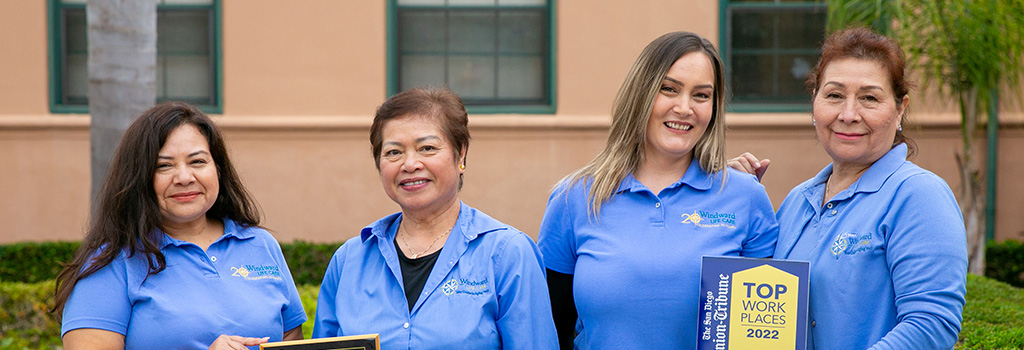Protecting Seniors from Medical Misinformation
April 23, 2024 | Healthy lifestyles, Maintaining Independence

In the age of the internet, misinformation is everywhere, particularly when it comes to health and medical issues. Misinformation can spread faster than the common cold, often because sensational content—however inaccurate—tends to get more clicks and shares.
“We cannot underestimate the dangers of health misinformation and the need to understand why it spreads and what we can do about it,” said public health expert Monica L. Wang, ScD, in an article for BU Today, published by Boston University. She notes that “vaccines are the number one topic of misleading health claims.”
Why is medical misinformation so rampant online?
Medical misinformation thrives online for several reasons:
- Sensational content goes viral. Dramatic and fear-inducing headlines are more likely to get clicks. This “clickbait” often lacks factual backing but is designed to draw attention.
- Medical science is complicated. Medical science is often complex and always evolving. Studies can yield contradictory results, or new evidence can update previous understandings, which may confuse non-experts.
- Humans have biases. People tend to seek information that confirms their existing beliefs. Online algorithms exploit this tendency. “By tailoring content based on past interactions, social media algorithms can … limit your exposure to diverse perspectives,” says Wang.
- Commercial and ideological interests. Some websites or influencers spread misinformation to sell products or advance specific agendas, which can overshadow evidence-based information.
The impact on older adults
Medical misinformation can particularly affect older adults, who often manage multiple health conditions and medications. Here are some common types of medical misinformation that might impact seniors:
- Alternative treatments. There’s a lot of misinformation out there about alternative remedies and supplements that claim to cure or manage conditions common among older adults, such as arthritis, diabetes, or dementia. These treatments might not only be ineffective, but could interfere with prescribed medications.
- Misleading information about chronic diseases. Misinformation about the chronic diseases like heart disease, cancer, and Alzheimer’s can lead older adults to adopt harmful practices or neglect effective treatments.
- Scams involving Medicare and health insurance. Older adults are often targets of scams that give false information about health coverage. Some scammers try to get personal information by pretending they are from Medicare or other health insurance organizations.
- Vaccine misinformation. Misinformation around vaccines, such as those for influenza, pneumonia, and shingles, can lead to vaccine hesitancy. This is dangerous as older adults are more vulnerable to these diseases.
- Nutritional misinformation. Dietary advice can be misleading, promoting certain diets or supplements as miraculous solutions to health issues that are common in older age. This can lead to nutritional imbalances or deficiencies.
For older adults, it’s crucial to talk to trusted healthcare providers and rely on reputable sources like the Centers for Medicare & Medicaid Services (CMS) and the Centers for Disease Control and Prevention (CDC). Specific condition-related groups, like the Alzheimer’s Association, are also trustworthy.
How to find accurate, trustworthy medical and health information
To combat misinformation, use only reliable sources. Here’s how you can ensure the information you’re getting is trustworthy:
- Verify with multiple reputable sources. Always cross-check health information with multiple respected institutions like CMS, the CDC, or reputable medical journals.
- Look for expert opinions. Information should be backed by qualified professionals such as doctors, researchers, or academic institutions.
- Check the date. Medical advice changes over time. Ensure the information is current by checking the publication date.
- Beware of bias. Be cautious of sources that sell products or are affiliated with companies that do.
Local resources
The San Diego State University Library provides an excellent resource for accessing reliable health information through its Health & Wellness Research Guide. This guide is designed to help consumers navigate the vast amount of health information available online and identify what is trustworthy.
The guide offers access to databases and books curated by health information professionals, as well as access to academic journals. You’ll find tips and tools to help you evaluate the reliability of different types of health information. The guide also provides San Diego-area health information and resources.
In East County, the Health & Wellness Library (formerly the Herrick Health Library) offers comprehensive consumer health resources to those that live, work, attend school, or have a healthcare connection to East County. Some services are available to the general public. The service is operated by the Grossmont Healthcare District.
Of course, Windward’s Aging Life Care Managers are always happy to help their clients research and learn more about their health-related interests.

